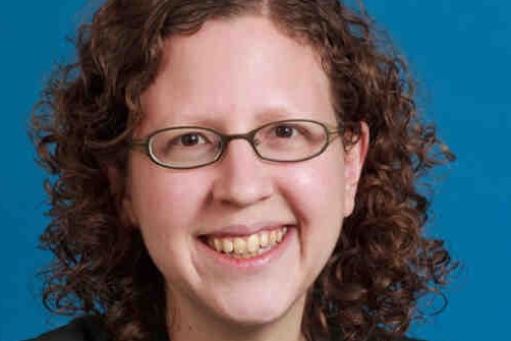Graduating from MIT with a doctorate in economics in 2012, Aron-Dine has spent over a decade in roles at the National Economic Council, the Office of Management and Budget, and the Department of Health and Human Services, as well as leading health policy work at the Center on Budget and Policy Priorities. Today she is the Acting Assistant Secretary for Tax Policy, the top tax official at the Treasury Department, and directs the office in developing, recommending, and implementing Federal tax policy. In that role, she works closely with Greg Leiserson, her MIT classmate, who serves as the Deputy Assistant Secretary for Tax Analysis and directs the work of the office’s economists.
Q: What parts of your MIT training been most useful in your policy career?
A: Broadly speaking, there’s no question that the most useful part of my economics training has been the core conceptual framework for analyzing problems. Focusing on particular aspects of my MIT training, I’ve certainly benefited from having the tools to digest empirical research and from being able to pretty quickly determine (and, when necessary, explain) whether a particular paper should or shouldn’t move one’s priors.
Q: How as your MIT training been LEAST useful? What were the problems you faced that your Ph.D. didn’t prepare you for?
A: There are many skills I’ve needed to develop in government that it probably wasn’t the job of an economics PhD program to provide – for example, a variety of skills in managing people. But one particular skill I’ve had to learn is how to relate other ways of thinking and talking about economic problems to the economics toolkit. For example, in my current role, I interact a lot with people who approach clean energy tax incentives from an industry background, or from various engineering, natural science, or environmental policy backgrounds – and who know much more than I do about the particulars of the relevant markets and technologies. When they say something about how the market works that sounds off to me, I have to figure out whether that’s because it’s not in my native “language,” because they have good evidence that the market isn’t working the way it’s “supposed to,” or because I actually disagree.
Q: How would you compare being an economist at a think tank to an economist directly implementing public policy?
A: What I find most rewarding about working in government is the fact that some of my work involves directly solving problems that matter to people. Not to over-idealize, but sometimes, we make a decision and as a result more people get income support or health care, or greenhouse gas emissions are reduced, or the federal government collects more revenue.
Q: What are the particular economic concepts that have served you best in describing and making policy? Are there any examples of creating “a-ha” moments for policy makers with your economics training?
A: The experience that was both most heartening and most humbling for me as an economist in government was my time at HHS during a period of rapid price increases and some disruption in the ACA marketplaces (2015-early 2017). On the one hand, economists in the Administration were the most clear-eyed about the adjustment to a new equilibrium and about the fact that, given the structure of the ACA’s premium tax credits, adjustment would occur with very modest coverage loss – exactly what happened. On the other hand, we had a lot of trouble explaining why prices were so far off in the first place (especially once insurers had access to initial data), why the transition took so long, and some of the choices insurers made in the interim! A broad take-away for me was that the economics framework for thinking about equilibrium outcomes is powerful and important in real-world policy settings – but we should be humble about how long and messy the transition can be.
Q: What are the particular important economic concepts that you have the hardest time translating to policy audiences?
A: As I said, I think equilibrium thinking is one of the more useful things economists bring to the table, sometimes one of the harder things to explain, and at the same time a place where some humility is warranted. In some of my prior roles, I’ve often been the only economist at the table. In my current role, my staff is a mix of lawyers and economists, and the lawyers are pretty used to working with economists. It would be interesting to ask them, what legal concept do you have the most trouble getting across to those economists?!
Q: How can other economics alumni – both inside and outside of academia - best help inform effective policy making in the U.S.?
A: For an economist newly coming into government, one piece of advice I would give is to identify a non-economist working in your policy area who you think is smart, effective, and shares your values – and try really hard to make yourself useful to them. I’d also recommend being open to the idea that your contributions may be different than you’d expect. Among academic economists doing a short stint in government, I’ve seen people make major contributions through their ability to do finger exercise to roughly quantify things – often having nothing to do with economics or their particular areas of expertise. For economists in academia and looking to shape policy – I don’t have better advice than to do good research on important problems, and explain it clearly!
